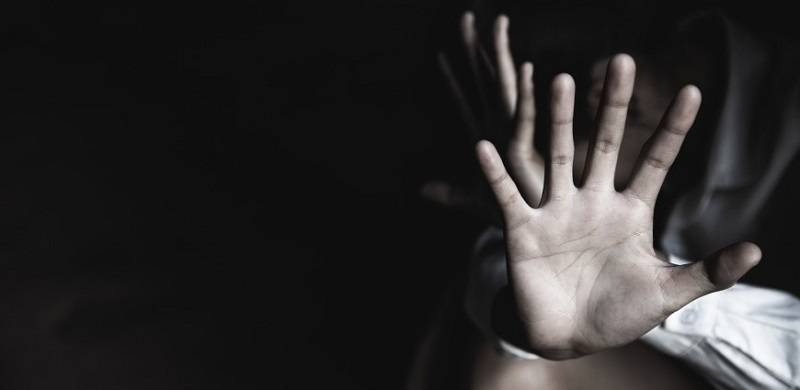
The issue of child trafficking through illegal adoption in Pakistan made the news after Sarim Burney, the founder of the Sarim Burney Welfare Trust International (SBWTI), was arrested.
The interim challan (interim charge sheet) presented by the Federal Investigation Agency (FIA), Anti-Human Trafficking Circle, prosecutes the accused under the Prevention of Trafficking in Persons Act, 2018, and the Pakistan Penal Code (PPC), 1860. The case has also attracted the jurisdiction of FIA's Economic Crime Wing under the Anti-Money Laundering Act (AMLA), 2010.
Money laundering is either committed by those who commit the offence or 'predicate offence,' such as drug or human trafficking, and then launder the proceeds of those crimes, or by those who only launder the proceeds of crimes committed by others. Money laundering is now prosecuted as a distinct offence, without requiring conviction for a predicate offence, under Explanation II of Section 3 of the AMLA.
In Sarim Burney's case, the interim challan has revealed that biological parents allegedly 'sold' their children, and the accused then charged money from the US-based family who adopted the children. This transaction of money for selling children, under the pretext of receiving 'donations' by overseas Pakistanis, constitutes money laundering.
The law, however, is silent on whether to treat the parents, who allegedly sold their children consensually for money, as victims or co-accused? As far as money laundering goes, the conviction for the trafficking as predicate offence of the alleged trafficker and co-accused parents is not required. However, the status of parents, either as victims or accused, is important for obtaining a guilty verdict for human trafficking.
The parents can be treated as victims who allegedly sold their children due to poverty, but this can legalise selling children. They can be treated as accused but may testify as approvers for the Prosecution under sections 337 and 338 of the Code of Criminal Procedure (CrPC), 1898, but they (and others like them) might not come forward, fearing they will be prosecuted as the accused. Many legal scholars have argued in favour of prosecuting such parents as accused under sections 328 and 328A of the PPC for abandoning their child.
To legitimise the custody of the sold children and to traffic them abroad, the accused allegedly made misstatements before a Family Court to obtain their guardianship
Abject poverty is the primary cause behind human trafficking. In 2019, more than 600 poor Pakistani girls were reportedly sold as brides to Chinese men, and many of whom were isolated, abused or forced into prostitution. In 2010, there was a danger of flood victims selling their children and organs, but child marriages have recently reportedly risen due to abject poverty and devastation caused by the 2022 floods in Sindh, and the victims can end up being trafficked. According to the International Labour Organization (ILO), 30% of human trafficking victims are in a forced marriage. The Sindh government has ordered a probe into the matter.
The absence of proper adoption laws is also one of the causes for child trafficking because adoption is not recognised under Islamic law. However, the Registration Act, 1908; Sindh Child Protection Authority, constituted under the Sindh Child Protection Authority Act (SCPAA), 2011; and Family Courts under the Guardian and Wards Act, 1890, deal with such cases.
However, these laws proved ineffective in this case, as the SBWTI is not registered under the SCPAA but under the Sindh Darul Atfal (Supervision and Control) Act, 1976. Similarly, to legitimise the custody of the sold children and to traffic them abroad, the accused allegedly made misstatements before a Family Court to obtain their guardianship.
In 2018, Justice Salahuddin Panhwar, in the Mst. Benish Liaquat case (2020 MLD 740), observed that SBWTI needs to devise mechanisms to remain updated about orphan children's welfare —before and after giving them to any family. Secondly, he observed that magistrates and district judges in cases under Section 491 CrPC, or where children are recovered, shall inquire into petitioner's fitness and claims, and to nestle children at a proper place. Lastly, he directed the Social Welfare Department and Child Protection Authority to submit records from the last two years regarding children who are destitute, recovered, or adopted and are with any Dar-ul-Aman.
In 2020, Justice Salahuddin Panhwar, on the issue of abuse and marriage of orphan girls in shelter homes, summoned the officials of Sindh Child Protection Authority, Women Development Department, and Sindh Police in personal capacity. In 2021, he ensured the registration of 34 orphanages in Sindh and was assured that the rest would be enlisted within three months.
It is pertinent to remember that Pakistan had been added to the Financial Action Task Force's (FATF) Grey List in 2018 for high risk of money laundering and terrorism financing. It was removed from the list in 2022, after addressing the deficiencies. Pakistan was also added to the Child Soldiers Prevention Act (CSPA) list in 2021, for not meeting the minimum standards for the elimination of trafficking. It was eventually removed in 2022, after making significant efforts. But Pakistan can easily be added to such lists again if financial crimes such as money laundering and their predicate offences like child trafficking are not curbed and effectively prosecuted.

